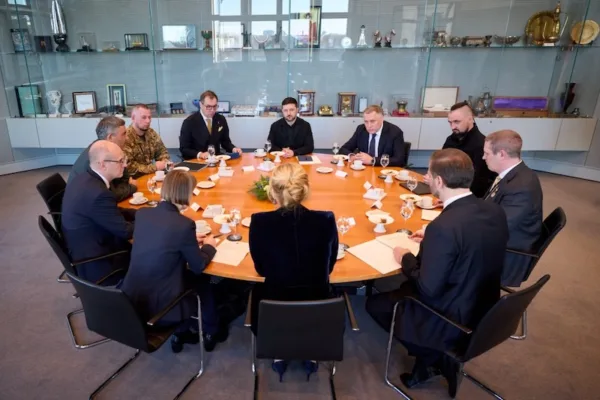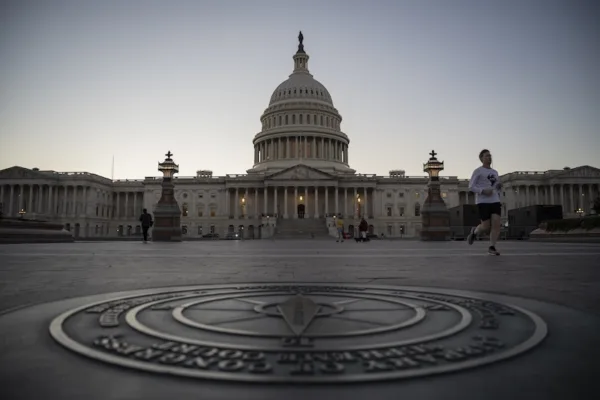‘Justice’ march marks beginning of losing battle
Republican People’s Party (CHP) Chairman Kemal Kılıçdaroğlu wrapped up his 25-day march from the capital Ankara to Istanbul with a rally on Sunday. Addressing the crowd at the event, he warned that the opposition would remain “on the streets” until their demands are met and pledged to “tear down the walls of fear”. His message was straightforward: “No matter what he does, [President Recep Tayyip] Erdoğan will leave in 2019. And July 9 is a new step, a new climate, a new history. July 9 is a new birth.”
After engaging the symbolism of July 9, I will analyze the movement’s demands and discourse.
Had it not been for last summer’s coup attempt, the month of July would have been a relatively calm time of the year for Turkish politics. Of course, it is admittedly difficult to find an entire month in the history of countries like Turkey whose history, location and society are in constant motion, when nothing significant has taken place. (Hence the word is “relative”.)
A closer look at the Republic of Turkey’s history reveals that three events stick out: The signing of the Treaty of Lausanne in 1923, the transition to a multi-party democracy in 1946 and the July 15, 2016 coup attempt. The first event represented Turkey’s emergence in the international arena as a modern nation-state. The second incident marked the country’s first step toward a functioning democracy – although it was tainted by election fraud. The third development, which was arguably the single most crucial event in the multi-party period, triggered a response from ordinary people who stood in front of tanks and took control of their own future for the first time.
The CHP leadership now desperately wants to challenge the legacy of July 15 by promoting another symbolic date, July 9. In the process, Kılıçdaroğlu claimed that a “civilian coup” had taken place on July 20, 2016, when the state of emergency was declared. He also tried to downplay the people’s heroism by calling July 15 a controlled coup. Kılıçdaroğlu wants people to believe that he marched hundreds of miles for July 15 as well. But he does not want justice for perceived victims or so-called journalists. The vast majority of the people that the main opposition party wants to be freed are members of terrorist groups, including the Gülenist Terror Group (FETÖ), the PKK and the Revolutionary People’s Liberation Party-Front (DHKP-C).
By suggesting that the situation in Turkey today is “similar to Hitler’s dictatorship in the 1940s,” Kılıçdaroğlu is not trying to highlight the shortcomings of Turkey’s justice system. Instead, he seeks to discredit the entire judicial process that started after the failed coup.
To be clear, it is virtually impossible for this clash of competing symbols to mark a victory for the CHP. At the end of the day, Kılıçdaroğlu has been attacking the symbolism of the national will crafted by Erdoğan. Of course, some commentators desperately want to believe that Kılıçdaroğlu’s march means something. They argue that “Turkey has started to change” and Kılıçdaroğlu “has emerged as the sole leader of the opposition” to “change the government’s calculus for the 2019 elections.”
Although opposition parties could contribute to Turkey’s democracy by becoming more effective, I must disagree with such hasty conclusions. By marching from Ankara to Istanbul, the main opposition leader may have consolidated his position as CHP chairman, but it is no secret that he made the movement more open to marginal groups and vulnerable to acts of provocation. Judging by the main opposition party’s demands and language, the sole purpose of the justice march was to form a united anti-Erdoğan front ahead of the 2019 elections. The frequent references to “the palace”, “dictatorship” and “Erdoğan’s fears” all support this claim.
In other words, Kılıçdaroğlu opted to polarize society in an attempt to have Erdoğan voted out of power in the next election cycle. Until 2019, the self-proclaimed justice seekers will position themselves against the supporters of the ongoing fight against FETÖ and the PKK. Images of the national resistance against the coup forces will be countered with the July 9 anti-dictatorship protesters. To be clear, the Western media was quick to push the same narrative. The British and American press would like their readers to believe that the justice march represented a challenge and show of power against Erdoğan. The German media was so excited that they hailed Kılıçdaroğlu as a “people’s hero”.
Ahead of the first anniversary of last summer’s coup attempt, Turkey’s main opposition party openly challenged the nationwide consensus of July 15 by creating an alternative set of symbols and rhetoric for the sake of attacking Erdoğan. But the only question that matters is which day is more valuable to the Turkish people: July 15 or July 9?
This article was first published in Daily Sabah on July 12, 2017










